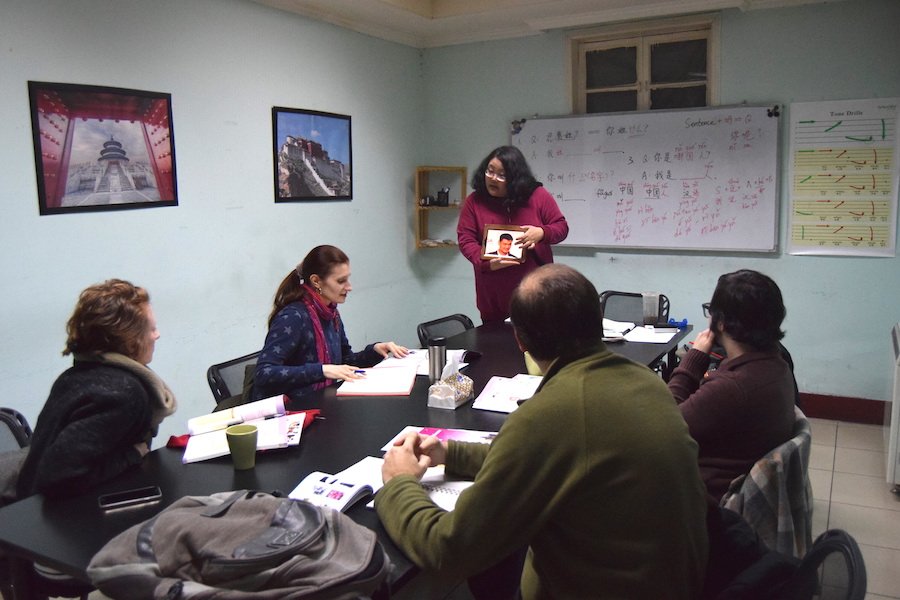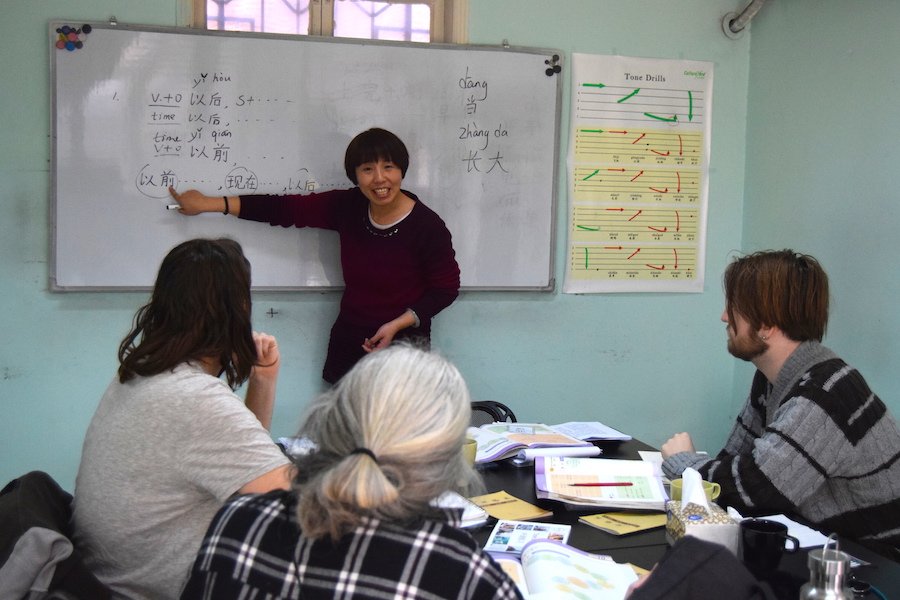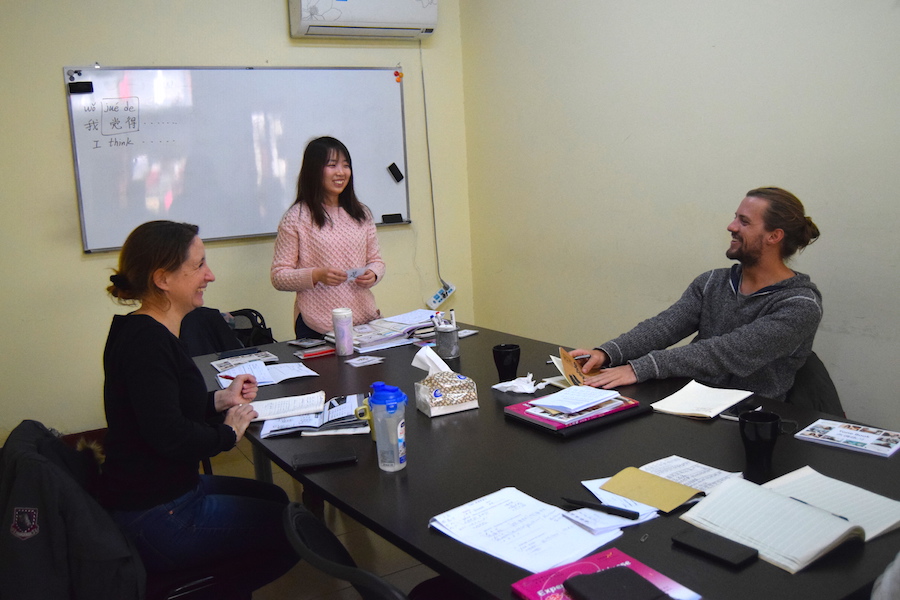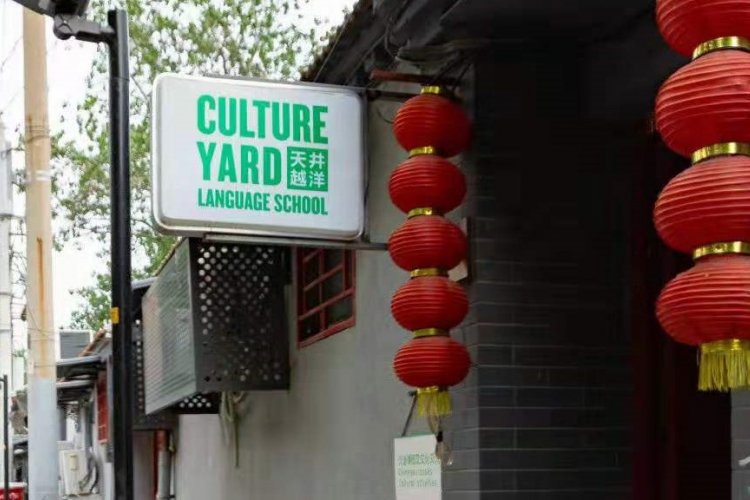Experience: Learning Chinese at Culture Yard in Beixinqiao
Tomorrow. I’ll definitely do it tomorrow.
And so begins the perpetual carrot-on-a-stick endeavor that is learning Mandarin, the bounty from hours of character memorization and stilted conversation dangling mere inches away from your face, perceivable but apparently not always attainable. If you weren’t lucky enough, like myself, to study Chinese as a part of a degree course or through intensive training, then learning the language while occupied by a full-time job on the side is a daunting and often unenviable undertaking. It’s also one which is supremely easy to put off if all factors aren’t in your favor:
“I’ll brush up first before jumping back into classes,” “I don’t have the extra cash right now,” “the time/payoff ratio’s just not worth it,” “I prefer spending my evenings having Haidilao delivered to my couch, pouring majiang on my bare chest without drawing judgement from others,” etc. etc. The excuses can be as varied and original as the mind allows.
RELATED: Back to School: Improving Your Zhongwen in the Capital
Absconding is often more painful than the alternative, a fact that Culture Yard knows only too well. If you’re determined to study but worry about finding somewhere amenable to your requirements, they've seen hundreds of people just like you, with the same exact concerns come through over the seven years that they’ve been in business. It is through feedback and openness that they have created an approach to make the process of learning Chinese as painless as possible and offer flexible courses to meet all needs. Not having enough time to go head-first into an intensive class but still wanting to brush up and improve on the Chinese that I had cobbled together previously, I enrolled in the school’s part-time 30-hours (eight weeks) evening course. Taking two two-hour classes per week has allowed me to build my vocabulary and practice at a comfortable pace: I don’t feel burned out and I see the immediate rewards of grammar and situational dialogues, applying them to real life scenarios. These interactions would often end in me staring nervously at the ground, conscious of the pores on my brow opening to answer for me, reaching for the all to familiar tingbudong.
Now I can do all that and get the tones right!

The group classes are divided between eight levels and capped at six students, ensuring that everyone gets a chance to speak but not they’re so saturated as to hinder the speed of material acquisition. Homework is set but is sparing enough that you aren’t stressed out constantly trying to catch up between lessons. Additionally, the laoshi all hold masters degrees in teaching Chinese as a foreign language and the length of time that the majority have stayed with the school is testament to their relationship with the management.
The space itself is airy and comfortable, making it perfect for pre-class cramming or the various cultural events – film showings, calligraphy classes, mahjong tournaments – that the team organize throughout the month. Even the school’s ayi is game for conversation as she goes about her daily tasks. It’s these factors that make heading to Beixinqiao after work a pleasure, not a chore, however tough it was psychologically to reschedule Majiang Mondays to Wednesday.

Also indicative of the structured learning environment are both the written and spoken placement tests that all newcomers must take before any money is exchanged, as well as the end of course tests that each student must pass in order to graduate to the next level. The feedback from these allows you to pinpoint weaker areas in your learning and gives you solid evidence of how you’re improving and the confidence that comes from such.
As anyone that has even begun to think about studying Chinese knows, a Google search for “the easiest way to learn Chinese” doesn’t reveal much other than the tough answer: there isn’t one. But over the past three months, I’ve spent RMB 80 an hour to go to enjoyable and laid-back group classes at Culture Yard, which fosters a low-pressure environment and provides the means for students to express themselves, which is key to finding the motivation to go on with this godforsaken language ... Just kidding.
Kinda.
More stories by this author here.
Email: tomarnstein@thebeijinger.com
WeChat: tenglish_
Instagram: @tenglish__
Photos courtesy of Culture Yard
Related stories :
Comments
New comments are displayed first.Comments
![]() tomarnstein
Submitted by Guest on Wed, 03/16/2016 - 19:01 Permalink
tomarnstein
Submitted by Guest on Wed, 03/16/2016 - 19:01 Permalink
Re: Experience: Learning Chinese at Culture Yard in Beixinqiao
For me, reputation, first impressions, and location were the key factors in my decision. As much as I didn't want to choose somewhere purely based on convenience, after a day's work I was certainly looking for somewhere as close to home as possible, as with the gym or anything remotely painful, I've found I'm much more likely to succeed if my couch is within close proximity, diligently waiting for me!
Thanks for the other rec's! I'm definitely open to shopping around if the factors are right.
![]() tomarnstein
Submitted by Guest on Wed, 03/16/2016 - 14:24 Permalink
tomarnstein
Submitted by Guest on Wed, 03/16/2016 - 14:24 Permalink
Re: Experience: Learning Chinese at Culture Yard in Beixinqiao
After studying Culture Yard for two semesters I was satisfied with the results just as many others have been (check their directory reviews) and as much as I tried to find some negatives to throw into the mix, I couldn't find any. Saying that, I'm sure there are plenty of great places to study Mandarin in Beijing. Do you have any other recommendations?
Validate your mobile phone number to post comments.







